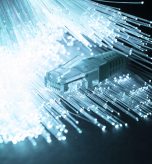Church leadership faces a critical decision when upgrading network infrastructure: invest in professional installation or attempt a do-it-yourself approach. Indeed, budget constraints make this choice challenging for many ministries. However, understanding the true return on investment reveals why professional church network installation delivers superior long-term value.
Modern worship depends on reliable technology. Live streaming reaches homebound members and extends ministry reach globally. Digital signage communicates announcements effectively. Facility-wide connectivity supports administrative operations and guest services. Consequently, network failures disrupt worship experiences and ministry effectiveness.
UniFi network solutions provide enterprise-grade performance at ministry-appropriate price points. When professionally installed and managed, these systems deliver exceptional reliability that DIY approaches cannot match. Moreover, the investment pays dividends through reduced downtime, lower long-term costs, and enhanced ministry capabilities.
The True Cost of DIY Church Networking
DIY network installations appear cost-effective initially. Equipment costs seem manageable, and volunteer labor eliminates installation fees. However, hidden costs emerge quickly that erode these apparent savings.
Time Investment and Opportunity Cost
Network installation requires significant time investment. Planning, equipment research, cable installation, configuration, and troubleshooting consume hundreds of hours. For church staff and volunteers, this time diverts from core ministry activities.
A typical church network installation requires 80-120 hours of labor. If staff members earning \$25-35 per hour handle this work, the labor cost reaches \$2,000-4,200. Moreover, this assumes no mistakes requiring rework. In reality, inexperienced installers often spend double this time correcting errors and addressing unforeseen challenges.
Volunteer labor isn’t truly free. These skilled individuals could contribute their expertise to ministry programs, community outreach, or discipleship activities. Instead, they spend weeks troubleshooting network issues. This opportunity cost represents real ministry impact sacrificed for technology projects.
Equipment Selection Mistakes
DIY installers often purchase inadequate or incompatible equipment. Without professional expertise, churches buy consumer-grade hardware unsuitable for religious facility connectivity demands. These mistakes become apparent only after installation when performance falls short of requirements.
Common equipment selection errors include:
- Insufficient access point capacity for high-density worship spaces
- Inadequate switch port counts requiring costly expansions
- Wrong cable types that limit performance or violate building codes
- Incompatible components from different manufacturers
- Underpowered network equipment unable to handle live streaming bandwidth
Replacing incorrectly specified equipment doubles the total project cost. Churches pay twice—once for the wrong equipment and again for correct replacements. Professional installers specify appropriate equipment from the start, eliminating these costly mistakes.
Installation Quality Issues
Professional installers follow industry standards for cable routing, termination, and equipment mounting. DIY installations often violate these standards, creating performance problems and safety hazards.
Poor cable management causes signal interference and makes troubleshooting difficult. Improperly terminated connections create intermittent failures that are challenging to diagnose. Equipment mounted in inappropriate locations overheats or provides inadequate coverage. These quality issues generate ongoing problems requiring repeated troubleshooting efforts.
Building code violations represent serious concerns. Improper cable routing through plenum spaces violates fire codes. Inadequate electrical grounding creates safety hazards. These violations expose churches to liability and may require expensive remediation when discovered during inspections.
Lack of Warranty and Support
DIY installations void many equipment warranties. Manufacturers require professional installation for warranty coverage. When equipment fails, churches bear the full replacement cost rather than receiving warranty service.
Technical support proves challenging without professional relationships. Equipment vendors provide limited support for DIY installations. Churches struggle to diagnose problems without expert assistance. Consequently, minor issues escalate into extended outages affecting worship services and ministry operations.
The Professional Installation Advantage
Professional church network installation delivers value that extends far beyond initial setup. Expert installers bring experience, tools, and industry relationships that ensure optimal results.
Proper Network Design
Professional network design accounts for current needs and future growth. Experts assess worship space layouts, building construction, and ministry technology requirements. This comprehensive planning ensures the network supports all church systems effectively.
Site surveys map wireless coverage throughout facilities. Installers identify optimal access point locations for complete coverage without dead zones. They account for architectural features that affect signal propagation. As a result, every area receives strong, reliable connectivity.
Capacity planning ensures adequate bandwidth for all church activities. Live streaming requires substantial upload bandwidth. Digital signage needs consistent connectivity. Guest WiFi serves hundreds of devices simultaneously. Professional design allocates resources appropriately across these competing demands.
Quality Installation Standards
Professional installers follow industry best practices for every aspect of network deployment. Cable installations meet or exceed TIA/EIA standards. Equipment mounting follows manufacturer specifications. Configuration adheres to security and performance guidelines.
Proper cable management ensures clean, organized installations that simplify future maintenance. Cables route through appropriate pathways with proper support. Connections terminate correctly using quality components. Labels identify every cable and port for easy troubleshooting.
Testing validates performance before system handover. Installers verify cable performance, wireless coverage, and bandwidth capacity. They simulate high-load scenarios to ensure the network handles peak usage. This thorough testing prevents surprises during actual worship services.
Warranty Protection and Support
Professional installation preserves full manufacturer warranties. When equipment fails, warranty coverage provides free replacements. This protection saves thousands in potential repair costs over the system’s lifespan.
Ongoing support relationships provide peace of mind. Professional installers offer technical support when issues arise. They maintain relationships with equipment vendors for rapid problem resolution. Moreover, they understand church-specific requirements and challenges.
The UniFi Nerds maintain a 99% client retention rate. This exceptional retention demonstrates the value churches receive from professional installation and ongoing support. Satisfied ministries continue relationships year after year because the service delivers consistent value.
Calculating Church Network ROI
Return on investment analysis reveals the financial wisdom of professional church network installation. While initial costs appear higher, long-term value significantly exceeds DIY approaches.
Initial Investment Comparison
Consider a typical 300-seat church requiring comprehensive network coverage:
DIY Approach:
- Equipment: \$8,000-12,000
- Tools and supplies: \$500-1,000
- Staff/volunteer time (100 hours): \$2,500-3,500
- Mistakes and rework: \$1,000-3,000
- Total: \$12,000-19,500
Professional Installation:
- Equipment (properly specified): \$10,000-14,000
- Professional installation: \$4,000-6,000
- Testing and documentation: \$500-1,000
- Total: \$14,500-21,000
The professional installation costs \$2,500-1,500 more initially. However, this comparison doesn’t account for the complete picture.
Ongoing Cost Differences
Professional installations generate lower ongoing costs through superior reliability and efficiency.
Troubleshooting and Maintenance:
DIY systems require frequent troubleshooting. Staff and volunteers spend 5-10 hours monthly addressing network issues. Over five years, this represents 300-600 hours of labor worth \$7,500-15,000.
Professional systems with managed support require minimal internal troubleshooting. Issues are resolved remotely or through rapid on-site service. This efficiency saves thousands in labor costs annually.
Equipment Replacement:
DIY installations experience higher failure rates due to improper installation and configuration. Equipment replacement costs average \$1,000-2,000 annually. Over five years, this totals \$5,000-10,000.
Professional installations with warranty coverage experience lower failure rates. When failures occur, warranty service provides free replacements. Five-year equipment costs typically total \$1,000-2,000.
Downtime Impact:
Network outages during worship services create significant ministry impact. Live stream failures disappoint online viewers. Digital signage malfunctions confuse guests. Guest WiFi problems frustrate visitors.
DIY systems experience 10-20 hours of downtime annually. Professional systems typically experience less than 2 hours annually. This reliability difference directly impacts ministry effectiveness and guest experience.
Five-Year Total Cost of Ownership
DIY Approach:
- Initial investment: \$12,000-19,500
- Ongoing troubleshooting: \$7,500-15,000
- Equipment replacement: \$5,000-10,000
- Total: \$24,500-44,500
Professional Installation:
- Initial investment: \$14,500-21,000
- Managed support: \$3,000-6,000
- Equipment replacement: \$1,000-2,000
- Total: \$18,500-29,000
Professional installation saves \$6,000-15,500 over five years. Moreover, this analysis doesn’t quantify the ministry impact of superior reliability and performance.
Ministry Impact of Reliable Church WiFi Systems
Beyond financial ROI, professional church network installation delivers ministry benefits that DIY approaches cannot match.
Consistent Live Streaming Quality
Live streaming extends ministry reach to homebound members, distant family, and global audiences. However, streaming requires substantial, consistent bandwidth. Network interruptions cause stream failures that disappoint viewers and damage ministry credibility.
Professional managed ministry networks prioritize streaming traffic. Quality of service configurations ensure adequate bandwidth regardless of other network activity. Redundant internet connections provide automatic failover if the primary circuit fails.
DIY networks often lack these capabilities. Streaming quality suffers when guest WiFi usage spikes. Single internet connections create vulnerability to outages. These limitations reduce streaming reliability and viewer experience.
Effective Digital Signage Communication
Digital signage communicates announcements, event information, and ministry opportunities effectively. These displays require reliable network connectivity to update content and maintain synchronization.
Professional installations provide dedicated network segments for digital signage. Displays maintain consistent connectivity regardless of guest WiFi load. Content updates propagate reliably to all screens simultaneously.
DIY networks often treat signage as an afterthought. Displays compete with guest devices for bandwidth. Connectivity issues cause displays to show outdated information or error messages. These failures undermine communication effectiveness.
Seamless Guest WiFi Experience
Guest WiFi represents a hospitality gesture that modern visitors expect. Families use devices to take notes, follow along with scripture, and share worship experiences on social media. Poor WiFi creates frustration that distracts from worship.
Professional church WiFi systems provide high-density coverage that supports hundreds of simultaneous connections. Branded captive portals welcome guests and collect contact information for follow-up. Network segmentation protects church systems while providing guests internet access.
DIY installations often provide inadequate capacity for high-density environments. Access points become overwhelmed during services. Guests experience slow speeds or connection failures. This poor experience reflects negatively on the church’s hospitality.
Reliable Administrative Operations
Church staff depend on network connectivity for daily operations. Cloud-based church management systems require consistent internet access. Email, document sharing, and financial systems all depend on reliable religious facility connectivity.
Professional networks provide the reliability administrative operations demand. Staff access systems instantly without delays or interruptions. This efficiency improves productivity and reduces frustration.
DIY networks often prioritize worship space coverage while neglecting administrative areas. Staff experience connectivity issues that impede productivity. These problems create ongoing frustration and reduce operational efficiency.
Why Churches Choose UniFi Networks
UniFi solutions provide enterprise-grade performance at prices appropriate for ministry budgets. These systems deliver the reliability churches need without the complexity enterprise equipment typically requires.
Ministry-Appropriate Pricing
UniFi equipment costs significantly less than comparable enterprise solutions. Churches receive professional-grade performance without enterprise pricing. This value proposition makes reliable networking accessible to ministries of all sizes.
Transparent pricing eliminates surprise licensing fees. Unlike many enterprise vendors, UniFi doesn’t charge ongoing licensing costs for basic functionality. Churches pay once for equipment and receive all features without recurring fees.
Scalable Architecture
Churches grow and technology needs evolve. UniFi’s scalable architecture accommodates expansion without requiring complete replacement. Add access points to extend coverage. Upgrade switches to increase capacity. Integrate security cameras and access control using the same network backbone.
This scalability protects initial investments. Equipment purchased today continues serving effectively as the church grows. Incremental additions expand capabilities without starting over.
Centralized Management
UniFi’s management platform provides comprehensive visibility into network performance. Monitor bandwidth usage, identify connectivity issues, and track device connections from a single dashboard. This visibility simplifies troubleshooting and capacity planning.
Multi-campus churches benefit from centralized management across locations. Monitor all campuses from one interface. Deploy configuration changes to multiple sites simultaneously. This centralization reduces IT overhead and ensures consistency.
Proven Reliability
UniFi networks power thousands of churches nationwide. These installations demonstrate consistent reliability across diverse environments. From small rural congregations to large urban megachurches, UniFi delivers dependable performance.
The technology supports critical ministry functions including live streaming, digital signage, and facility-wide connectivity. Churches trust UniFi for Sunday morning reliability when technology failures would significantly impact worship experiences.
The Professional Installation Process
Understanding the professional installation process helps churches appreciate the value this service delivers.
Comprehensive Assessment
Professional installations begin with thorough facility assessment. Installers evaluate building construction, worship space layouts, and ministry technology requirements. This assessment ensures the network design addresses all church needs.
Site surveys map wireless coverage requirements. Installers identify optimal access point locations and assess potential interference sources. They plan cable routes that minimize installation costs while maintaining aesthetic standards.
Detailed Design and Planning
Network design documents specify equipment, locations, and configurations. Churches review plans before installation begins. This transparency ensures the solution meets expectations and budget constraints.
Designs account for current needs and future growth. Installers plan capacity that accommodates ministry expansion. They recommend phased implementations that spread costs across budget cycles when appropriate.
Professional Installation
Installation proceeds with minimal disruption to church operations. Most work occurs during weekdays when facilities aren’t in use. Installers coordinate with church staff to avoid scheduling conflicts.
Installers follow industry standards for all work. Cable installations meet TIA/EIA specifications. Equipment mounting follows manufacturer guidelines. Configuration adheres to security best practices. This attention to detail ensures optimal performance and longevity.
Thorough Testing and Documentation
Comprehensive testing validates network performance before handover. Installers verify wireless coverage in all areas. They test bandwidth capacity under simulated load. Configuration testing ensures all systems communicate properly.
Complete documentation includes network diagrams, equipment locations, and configuration details. This information proves invaluable for future maintenance and expansions. Churches receive thorough documentation that DIY installations rarely produce.
Staff Training and Knowledge Transfer
Professional installations include staff training on network management and basic troubleshooting. Church teams learn to monitor network health, manage guest WiFi, and address common issues. This training empowers staff while reducing support costs.
Training materials and documentation support ongoing learning. Staff reference these resources when questions arise. This knowledge transfer ensures churches can manage day-to-day operations independently.
Real-World Church Network ROI Examples
Actual church experiences demonstrate the ROI professional installation delivers.
Mid-Size Church: 400 Members
A 400-member church attempted DIY network installation to save costs. After six months of intermittent problems, they engaged professional help. The assessment revealed multiple issues requiring correction.
Improperly configured equipment caused bandwidth bottlenecks. Inadequate access point coverage created dead zones. Poor cable installation violated building codes. Correcting these issues cost \$8,000—nearly as much as professional installation would have cost initially.
After professional remediation, the church experienced zero network outages over the following two years. Live streaming reliability improved dramatically. Staff productivity increased as connectivity issues disappeared. The church calculated they recovered the additional investment within 18 months through reduced troubleshooting time alone.
Large Church: 1,200 Members, Multiple Campuses
A multi-campus church invested in professional UniFi network installation across all locations. Initial cost was \$45,000 for three campuses. They considered DIY but recognized the complexity and risk.
Over five years, the church experienced only three hours of total network downtime across all campuses. Live streaming reached thousands of viewers weekly with consistent quality. Digital signage effectively communicated across all locations. Guest WiFi supported thousands of devices without performance issues.
The church calculated they saved \$15,000 annually in staff troubleshooting time compared to their previous DIY network. Additionally, improved live streaming quality increased online engagement by 40%, extending ministry reach significantly. The ROI exceeded 200% over five years when accounting for both cost savings and ministry impact.
Small Rural Church: 150 Members
A small rural church with limited budget chose professional installation for their first network. The \$12,000 investment seemed significant for their size. However, they recognized the importance of reliable technology for ministry effectiveness.
The network enabled consistent live streaming that connected distant family members with their home church. Digital signage improved communication effectiveness. Guest WiFi enhanced hospitality for visitors. These capabilities would have been impossible with an unreliable DIY installation.
Over three years, the church experienced zero network-related service disruptions. Online viewership grew to represent 20% of their regular attendance. The reliable technology enabled ministry expansion that would have been impossible otherwise. Church leadership considered the investment one of their best ministry decisions.
Making the Right Investment Decision
Church leadership must weigh multiple factors when deciding between DIY and professional network installation.
Budget Considerations
Professional installation costs more initially. However, total cost of ownership over five years typically favors professional approaches. Lower ongoing costs and superior reliability deliver better long-term value.
Many churches find phased professional installation more affordable than attempting DIY. Install core infrastructure professionally, then add capabilities incrementally as budget allows. This approach provides immediate reliability while spreading costs over time.
Ministry Impact Priority
Churches prioritizing ministry effectiveness over cost minimization consistently choose professional installation. Reliable technology enables ministry capabilities that unreliable networks cannot support. Live streaming, digital communication, and guest services all depend on network reliability.
The 99% client retention rate demonstrates that churches value the reliability professional installation delivers. Satisfied ministries continue relationships year after year because the service enables effective ministry.
Risk Tolerance
DIY approaches carry significant risk. Installation mistakes, equipment failures, and performance issues can disrupt worship services and ministry operations. Churches with low risk tolerance choose professional installation to minimize these concerns.
Professional installation includes warranty protection and ongoing support. When issues arise, expert help is available. This risk mitigation provides peace of mind that DIY approaches cannot offer.
Long-Term Vision
Churches planning for growth and ministry expansion benefit most from professional installation. Properly designed networks accommodate future needs without requiring complete replacement. This forward-thinking approach protects initial investments and enables ministry vision.
Professional installers design networks that scale with church growth. They plan capacity for future ministry technologies. This strategic approach ensures networks support ministry vision for years to come.
Invest in Ministry-Enabling Technology
The choice between professional church network installation and DIY approaches significantly impacts ministry effectiveness and long-term costs. While professional installation requires greater initial investment, the total cost of ownership, superior reliability, and ministry impact deliver exceptional return on investment.
UniFi network solutions provide the enterprise-grade performance churches need at ministry-appropriate prices. When professionally installed and managed, these systems enable reliable live streaming, effective digital communication, and seamless facility-wide connectivity. Moreover, they deliver this performance with minimal ongoing maintenance and exceptional reliability.
The 99% client retention rate demonstrates the value churches receive from professional installation and ongoing support. Satisfied ministries continue relationships year after year because the service consistently delivers value. This retention rate speaks to the quality, reliability, and ministry impact professional installation provides.
Church network ROI extends beyond financial calculations. Reliable technology enables ministry capabilities that unreliable networks cannot support. Live streaming reaches distant members and extends ministry globally. Digital signage communicates effectively. Guest WiFi enhances hospitality. These ministry benefits represent value that financial analysis alone cannot capture.
Professional vs DIY networking represents a choice between short-term cost savings and long-term value. Churches choosing professional installation invest in reliable technology that enables ministry effectiveness for years to come. They avoid the hidden costs, performance issues, and ongoing frustrations that plague DIY installations.
Ready to Invest in Reliable Ministry Technology?
Contact UniFi Nerds for Your Comprehensive Church Network Assessment
📞 Call: 833-469-6373 or 516-606-3774
💬 Text: 516-606-3774 or 772-200-2600
✉️ Email: hello@unifinerds.com
🌐 Visit: unifinerds.com
✓ Free Consultations • ✓ Phased Implementation • ✓ Budget-Friendly Solutions • ✓ Volunteer Training Included





